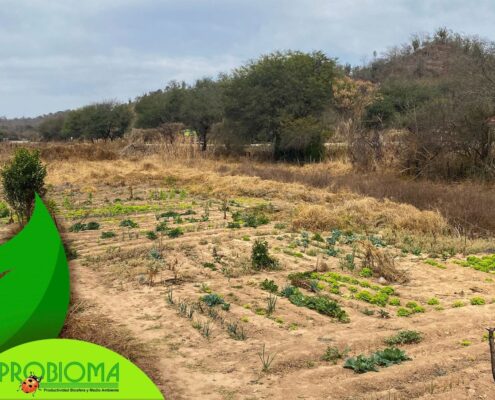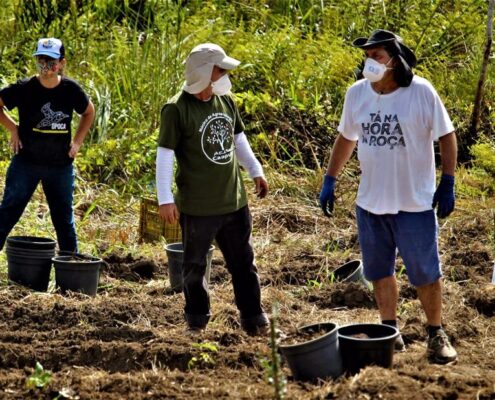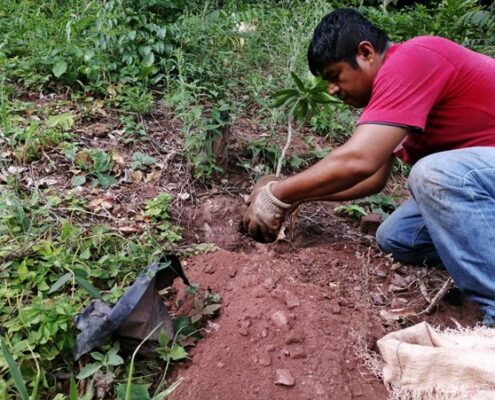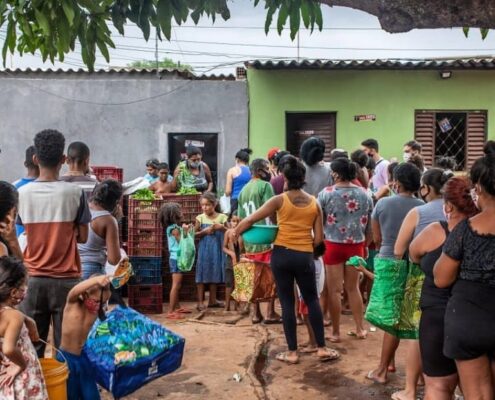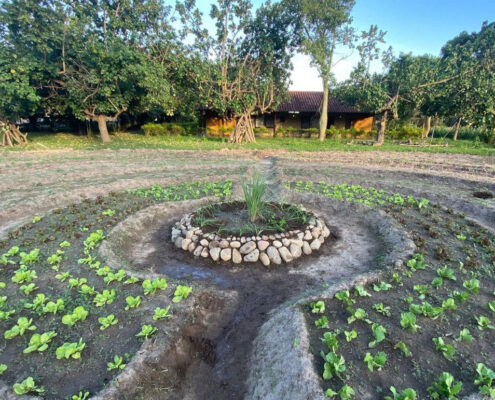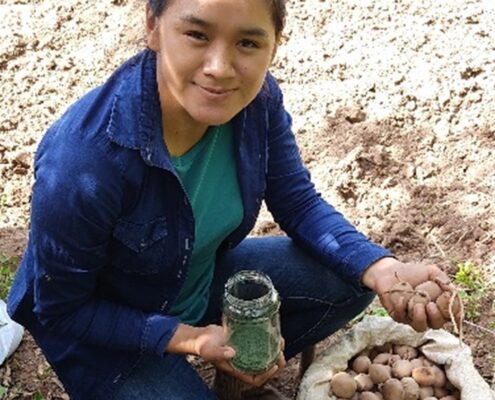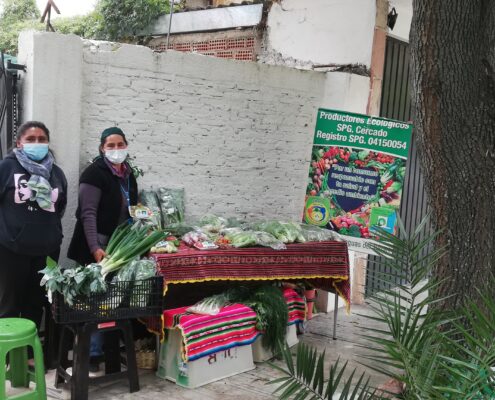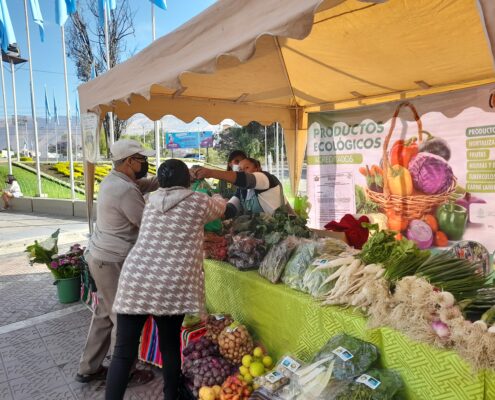 https://greenmarked.it/wp-content/uploads/2022/11/20220925_081629-scaled.jpg
1920
2560
Mark L. Miller
https://greenmarked.it/wp-content/uploads/2022/01/LOGO-GREENMARKED-SITO-600x600.png
Mark L. Miller2022-11-28 10:04:332023-05-22 11:44:25Climate-Friendly Bolivian Urban Agroecology to Achieve Local Food Security and Sovereignty in Bolivia
https://greenmarked.it/wp-content/uploads/2022/11/20220925_081629-scaled.jpg
1920
2560
Mark L. Miller
https://greenmarked.it/wp-content/uploads/2022/01/LOGO-GREENMARKED-SITO-600x600.png
Mark L. Miller2022-11-28 10:04:332023-05-22 11:44:25Climate-Friendly Bolivian Urban Agroecology to Achieve Local Food Security and Sovereignty in BoliviaNovember 28, 2022
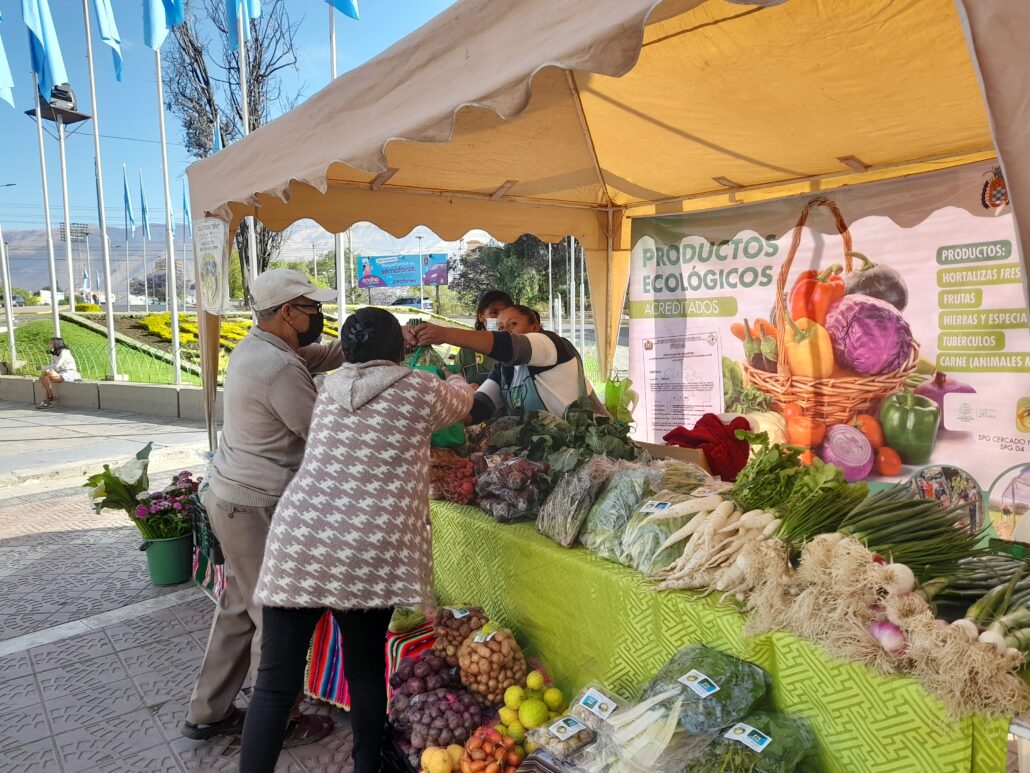
Today’s global food crisis forces us to rapidly find solutions that can guarantee local food security and sovereignty. Despite being embedded in the country’s constitution, Bolivia keeps promoting the production of commodity crops (e.g., transgenic soybeans) at the expense of cereals, tubers and vegetables used in the citizens’ daily diet [1][2].
In Cochabamba, one of the most polluted cities of the Bolivian Andes, a solution that tackles these issues whilst protecting the farmers’ health, preserving agricultural competitivity and contrasting urban sprawling is urban agroecology.
“Agroecology” is a regenerative, “more than sustainable” form of agriculture that applies ecological principles within the farming system so that local ecosystem and farm development dynamics are intrinsically integrated. Rather than only preserving, it aims to increase the environmental, social, and economic capital of future generations.
Started 20 years ago by the “AGRECOL Andes” foundation, urban agroecology in Cochabamba has supported the creation of ten certified agroecological communities in the city and its suburban districts. Every community grows vegetables and fruits locally, thus helping reduce carbon emissions from food transport and import. Consisting of 20 families each, every farming community must pass the national Participatory Guarantee System (“PGS”) agroecological assessment. Built on trust, transparency, social network, and knowledge exchange [3], the locally focused PGS certificate requires the active participation of stakeholders [4]. This includes regular meetings to discuss and organize farming activities, sales, training courses and paperwork for State agencies.
Communities are mostly made up and led by women. In a society where gender inequality, discrimination and violence against women are widespread, agroecology has also become a mean of empowerment for marginalized women. Switching from conventional to uncontaminated agroecological farming helped them obtain a better work-family balance and protect their children’s health.
Communities organize their activities independently but are supported by the international funds conveyed through AGRECOL Andes. For example, the “Ferias agroecologicas” project helped them open city markets specifically dedicated to agroecology, and the “Bolsaludable” farm-to-fork project (Figure 1) allowed them to start a weekly door-to-door delivery service of pre-ordered agroecological bags. The social tree planting “Agrecol Trees” project, instead, allowed international donors to plant a fruit tree in Bolivian agroecological parcels.
Fig. 1: The “Bolsaludable” truck leaves an agroecological home garden full of grocery bags to distribute around the city (Author, October 2022).
Climate-friendly agroecological farming can be scaled up in Cochabamba. Not only new members can join the existing communities and follow the agroecological principles and standards, but also new communities in the city satellite towns can be established. AGRECOL Andes will follow them in the three-years long ecological transition and until they can conduct all farming and administrative activities independently.
Cochabamba’s climate-friendly urban agroecological farming is a nature-based solution and a future-proof form of agriculture that helps establish food security and sovereignty in Bolivia. It also preserves human health, contrasts the climate crisis, provides social and economic benefits to farmers and protects city green areas from urban sprawling.
Related articles:
References:
[1] PROBIOMA. (2021, December). PROBIOMA impulsa el fortalecimiento de la producción de alimentos desde las comunidades. Agroeco noticias. https://web.probioma.org.bo/index.php/component/joomdoc/doc_download/275-agroeconoticias-15
[2] PROBIOMA. (2020). El modelo agropecuario global que enferma, contamina y no alimenta. https://web.probioma.org.bo/index.php/component/joomdoc/doc_download/251-probioma-bolivia
[3] IFOAM. (n.d.). Participatory Guarantee Systems. Retrieved November 28, 2022, from https://ifoam.bio/our-work/how/standards-certification/participatory-guarantee-systems
[4] Lopez Rosse Antequera, J. L. E. (2018, January 26). Participatory Guarantee Systems: A Transformative Public Policy to Boost Organic Farming in Bolivia. UNRISD. https://www.unrisd.org/en/library/blog-posts/participatory-guarantee-systems-a-transformative-public-policy-to-boost-organic-farming-in-bolivia
Cover- and preview image: Two members of the PGS agroecological community “Cercado” selling agroecological foodstuff to customers on a typical “Feria agroecologica” in Cochabamba’s city center.

